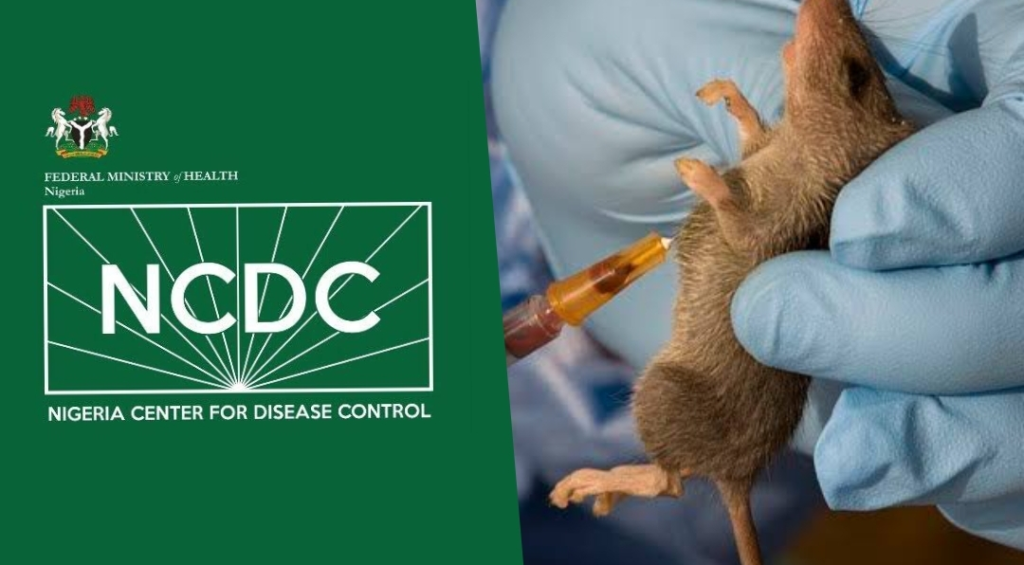
The Nigeria Centre for Disease Control and Prevention (NCDC) has confirmed the death of a 31-year-old physician who succumbed to Lassa fever after returning from the United Kingdom.
According to the latest update, the total number of confirmed Lassa fever cases in Nigeria has risen to 535 out of 2,728 suspected cases, with 98 deaths recorded across 14 states as of March 2, 2025.
NCDC Confirms Lassa Fever Case in Ondo State
The NCDC, in a public advisory issued on Sunday, disclosed:
“On March 5, 2025, the Nigeria Centre for Disease Control and Prevention was notified of a confirmed case of Lassa fever by the Ondo State Ministry of Health. The patient, a 31-year-old physician, was managed at a private health facility in Ondo State after returning from a trip abroad (UK).”
The agency further revealed that the physician left Nigeria on February 19, 2025, and returned on February 27, 2025. Samples were collected on suspicion of Lassa fever late on February 28, 2025, but the patient sadly passed away in the early hours of March 1, 2025.
Laboratory tests confirmed the Lassa fever diagnosis on March 4, 2025. The patient was reported to have visited his fiancée in Edo State, as well as family and friends, before traveling.
Lassa Fever: What You Need to Know
Lassa fever is a viral hemorrhagic fever caused by the Lassa virus, primarily transmitted by rodents, particularly the multimammate rat (African rat). The disease spreads through direct contact with infected rodents, contaminated food, and person-to-person transmission in healthcare settings with inadequate infection control.
Current Lassa Fever Statistics in Nigeria
The NCDC provided the following statistics as of Epi-week 9 (February 24 to March 2, 2025):
- 2,728 suspected cases reported nationwide.
- 535 confirmed cases.
- 98 deaths recorded, reflecting a case fatality rate (CFR) of 18.3%.
- Five states account for 91% of confirmed cases:
- Ondo (31%)
- Bauchi (24%)
- Edo (17%)
- Taraba (16%)
- Ebonyi (3%)
Additionally, ten local government areas (LGAs) make up 68% of confirmed cases, including Owo, Akure South, Etsako West, Kirfi, Akoko South-West, Bali, Esan North-East, Bauchi, Toro, and Jalingo.
Ongoing Response and Prevention Measures
In response to this development, the Ondo State Ministry of Health has intensified contact tracing and monitoring of all individuals who had direct contact with the deceased.
The NCDC has mobilized its in-country response structures, working with Port Health Services to track in-flight contacts and enhance surveillance at entry points. Contact tracing efforts are also ongoing in the United Kingdom, in line with the International Health Regulations (2005).
Symptoms and Importance of Early Detection
Lassa fever presents with symptoms similar to malaria, making early diagnosis critical. Common symptoms include:
- Fever
- Headache
- General body weakness
- Cough
- Nausea and vomiting
- Diarrhea
- Muscle and chest pain
- Sore throat
- Severe cases may involve bleeding from the ears, eyes, nose, and mouth.
“Early detection, diagnosis, and treatment significantly improve patient survival rates. Prompt reporting of symptoms ensures timely intervention, thereby increasing the chances of survival,” the NCDC emphasized.
